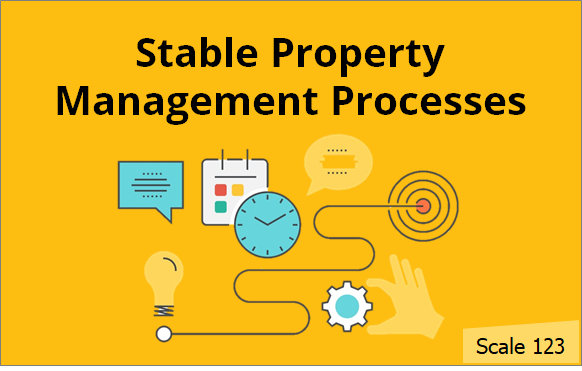You can’t scale your business if you don’t have stable property management processes. When things such as showing a unit, filling out a lease application, or conducting a unit inspection are done differently depending on who is doing it, the time of day, or the property it’s being done at etc. then growing your portfolio will introduce the potential for chaos. Here I am going to introduce the concept of “special cause vs common cause” process variation.
Stable Property Management Processes
Some variation is normal, or natural. In the world of Six Sigma, this is called “common cause variation.” In property management, common cause variation is evident in such things as:
- The number of leads you’ll get today isn’t going to be the same as yesterday
- Not every lease application is going to be filled out with 100% required fields
- The number of maintenance problems reported will vary day to day
- When you have a rainy day there are more no-show prospects than when the weather is clear
As long as you know what the “range of variation” is from day to day, or week to week, or season to season, you can make reasonable estimates for how many people you need and how much work you will get done. You can also set expectations about how fast you can respond to leads, process applications, or resolve maintenance tickets.
When the variation over time is within a predictable, manageable range, you are dealing with “common cause variation” and you have stable property management processes. In statistical terms, your processes are “under control”.
Variation in Property Management Processes
Now let’s look at an operation where you don’t have stable property management processes. Here, things are not under control. For example:
- The number of weekly leads is now half of what it used to average 3 months ago
- A storm came through and the staff focused on mitigation, and service ticket response times and tenant satisfaction ratings are below acceptable levels
- There are new employees in the leasing office and applications are taking longer to process and more than normal are on hold in an incomplete state
- More new tenants are reporting problems with units that should have been found in a pre-move in inspection
The problems like the above indicate that there are “special causes” that are causing variation in the property management processes. These variations can be due to reasons such as:
- Not training employees on procedures
- Not using the right checklists
- Not anticipating the impact of weather
- New regulations that require work be done differently
Understanding Special Cause vs Common Cause Variation is Key to Scaling Your Business
Next time when you are looking at your scorecard, pay special attention to trends. The numbers, such as # of leads in open state, or Average time to close service tickets, within a narrow range? Or is there significant variation from week to week or month to month? The variation should be an opportunity to make your property management business scalable.
Variation is easy to spot visually, and it tells you which processes need to be fixed. How to fix processes is discussed in my other blog posts.


